
Another year has come and gone, and with it some fantastic TV series.
Join the IWG TV Team as they pick their favourites of the past 365 days!
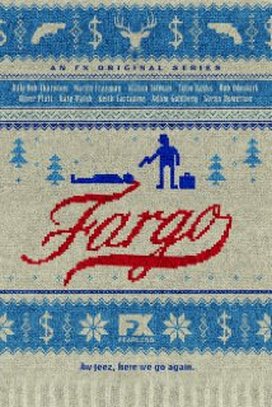
The past couple of years has seen a trend of film style stories make their way to the smaller screen, of recent note are Hannibal on NBC (discussed later) and Fargo on FX. However, despite Hannibal taking the events of the film and books and placing them into a police procedural drama, albeit one with a rather major twist, Fargo uses the events of the film as the backstory to spin off into a new realm of murder, crime and intrigue.
Despite maintaining the same name as the film, the series has very little to do with the town of Fargo, settling instead in Bemidji, and following around bumbling sad sack Lester Nygaard as he attempts to cover up his involvement in the murder of his wife. The story was beautifully dark and humorous, with plenty of gorgeous symbolism thrown around.
Whilst the events of the movie and series are predominantly separate, the links set up between the two help show how the events of the former influenced the latter. The suitcase of money from the film was found by one of the characters in the series, who used it to start up his enterprise and from there gain a niche in the criminal underworld, who are suggested to be the same crime syndicate from the film. The subtlety with which it’s all done is wonderful, trusting the audience is aware of the film that came before it and letting them join the dots.
Regardless of how good the symbolism and references to the film are. The show wouldn’t be able to stand on its own legs without a cadre of eclectic characters to take the story and run with it. Martin Freeman is perfectly suited to playing Lester Nygaard, and Billy Bob Thornton plays the disturbingly sociopathic Malvo with such menace that you can’t help but love him.
Fargo manages to marry dark comedy with incredibly tense sequences. The script is incredibly tight and grips you from the first episode to the last. It is truly a televisual tour-de-force.
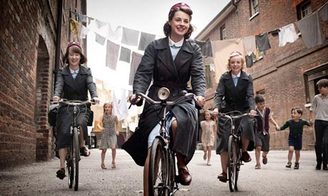
It might not be cool to declare Call the Midwife one of the best TV shows of 2014, but TV doesn’t need to be grim and depressing to be great. Having said that, the third season of Call the Midwife wasn’t a barrel of laughs. Having just about completely mined the source books for material, and with lead actress Jessica Raine set to leave the series, the creative team had to come up with something new. And they succeeded, sending off Nurse Jenny Lee with a storyline that saw her latest love affair end in tragedy (a death that was all the more devastating for how unexpectedly it happened). With Jenny taking a reduced role in the series, the other characters had more chance to expand. In the third season we saw new midwives in the form of Sister Winifred and Patsy, the development of Chummy and Peter’s life together as Chummy’s mother came to stay (and die), and Shelagh struggling to adapt to secular life outside the convent as a stepmother, even as she tried to become a mother herself. In 2014 Call the Midwife was just as heartwarming, tearjerking and entertaining as you could hope. And with the Christmas special having just aired, it seems that season four is going to be just as brilliant.
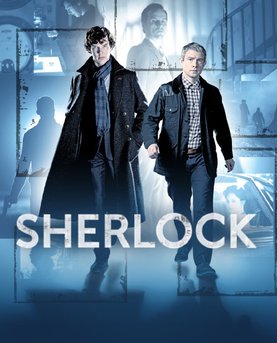
At the beginning of 2014, after an excruciating two year wait, fans of the chiselled super-sleuth detective were rewarded for their patience by watching three episodes within two weeks. And then we were promptly left to wait again for as many months as Moffat forces us to.
Bringing it back to Season Three, however, and Sherlock once again proved to be an intellectual television show with the world’s hottest star Benedict Cumberbatch back on full form as Consulting Detective Holmes. The promise season three kicked off with was the solve the puzzle, how did he survive the fall? And the answer both angered and pleased different fans. However, Season Three saw the cases take a back seat for some much needed character development as he faced his biggest challenge yet – becoming a third wheel to Watson’s impending marriage.
Though part of the season bristled against people who lamented that Elementary was a far better television series at tackling the emotion of Sherlock Holmes, Mark Gatiss and Stephen Moffat still created a wonderfully clever and fun television show. And it helps that at the core of the show is some marvellous acting from Cumberbatch and Martin Freeman as well as the addition of Amanda Abbington as the complex Mary Morstan. Well received and marvellously done, Sherlock tantalised us with yet another cliff-hanger.
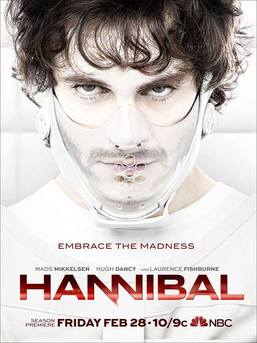
When anyone hears the name Hannibal Lecter, the first thought that pops into your head is how terrifying Anthony Hopkins was in Silence of the Lambs. Now we have a new cannibal to worry about in Bryan Fuller's adaptation - Mads Mikklesen. Here the series focus on the relationship between Hannibal and one of his patients, Will Graham (Hugh Dancy) an FBI agent who is very much troubled by his ability to empathise with serial killers. Between Mikklesen and Dancy it's hard to say if one out shone the other. The talent on screen is impeccable, albeit arguably the main guys behind the show’s success are undoubtedly the team of writers. Of course the show is adapted from Thomas Harris original novels and it seems they aren't afraid of diving into such character development that the books contain.
Another aspect that makes this series all the more enjoyable, is the fact that it only runs for 13 episodes - and no matter how superstitious you are, 13 is the perfect number. Each episode throws you a bone to chew on and will have you thinking about it until next week’s episode. Apart from being about a pretty controversial subject, this show doesn't shy away from anything. It's gory, it's sexy and it's scary and however much your brain tells you to look away your eyes will stay glued firmly to the screen. If the writers couldn't get any better at their jobs they reveal just enough in each episode to keep the viewer thinking they are one step ahead - but boy you quickly realise no one can stop Hannibal. This crime drama isn't for the faint hearted - but if you are a fan of physiological horror then this is a show you must sink your teeth into.
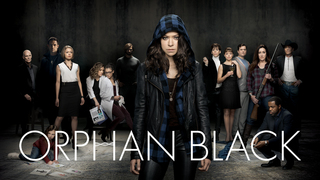
More women on TV is a great thing. More women in SF is a fantastic thing. Tatiana Maslany is a veritable acting tour de force, and the repeated snub by awards bodies is ridiculous and demonstrates the continued prejudice toward genre shows. The character development this season was superb and Maslany’s performance went from strength to strength. The fight for female autonomy and control over our own bodies continues to grow in daily life, and it was great to see this reflected in Orphan Black’s second season.
In a world where it is frequently men debating women’s bodies and women’s reproductive rights, it is important to acknowledge that Orphan Black puts women front and centre. From Sarah’s unique ability to have children, or –chillingly– when Helena is captured, impregnated against her will, and has her eggs forcibly removed, reproductive rights were front and centre. It’s lovely to see the way in which the clones band together to fight against a misogynistic system, and the support the women lend each other serves to illustrate the strength women can find in each other. While they all have very different backgrounds, the claims made on their bodies are all the same and they all deserve the right to control their own lives.
While there were missteps this season, they were small and overall it was a strong season packed full of dynamic storytelling. The balance of comedy and drama is carefully blended as the show tackles science, religion, gender, and sexuality, all while refraining from lecturing. Orphan Black remains one of the most progressive shows on television today; hopefully its return to TV in April next year will see a continuation of the high standard we have come to expect.
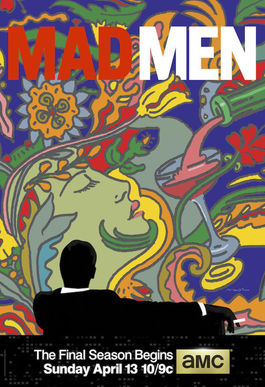
Get your cigarettes lit and your drinks poured, because Mad Men was truly outstanding this year. This supremely stylish drama has been tantalising audiences since 2007, and we bid it adieu next April in its final seven episodes. The first seven were on this year, as Don Draper (Jon Hamm) found himself feeling small both at home, as his wife Megan (Jessica Pare) moved to LA to pursue her acting career, and at work, as he found himself replaced and demoted following his emotional breakdown in Season Six. It was a tough position for a top dog to be in, but Draper always finds his way back up. As usual, the storylines were gripping and wonderfully written (Highlight of the season being Michael Ginsberg’s descent into insanity) and the supporting cast were excellent, most notably Christina Hendricks (Joan) and John Slattery (Roger). Season Seven Part One proved more than ever before that Mad Men is all about the future; what with the advancement of technology and man landing on the moon, its final season takes a look at the ways America began to change at the tail end of the 60s, and we’ll see that continue in Part Two. From Don’s staggeringly cool entrance to Robert Morse’s song and dance in his final scene, Mad Men was a force to be reckoned with in 2014.
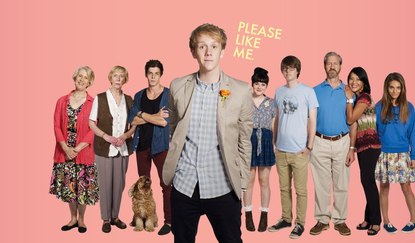
Please Like Me was a break-out hit in 2013, both in its native Australia and in America, where it became the launch-pad show for new youth channel Pivot. Based on the life of comedian/writer/star Josh Thomas, Please Like Me returned for a ten-episode second season (co-produced by Pivot and ABC - the Australian version) that built on last year’s solid foundation to create something extraordinary. Please Like Me is an incredibly relatable comedy for anyone either living or having lived through their twenties.
It also doesn’t shy away from difficult subject matter. Sexuality is covered, but while Josh’s sexual awakening was a major plot point of the first season, season two focuses on the even more difficult subject matter of mental illness. Josh’s mother Rose (portrayed impeccably by Debra Lawrence) is hospitalised with her bipolar disorder, where we are introduced to a whole other group of characters such as the fellow bipolar sufferer Ginger, the deadpan depressive Hannah, and Josh’s romantic interest Arnold, an anxiety sufferer played to perfection by Keegan Joyce. The real life Josh Thomas’ mother also has bipolar, which means that accuracy is the name of the game in its portrayal. But this is a comedy, and the fact is, sometimes mental illness can be very, very funny. It’s not a point-and-laugh kind of comedy, but something heart-warming and pure that very few shows would be able to pull off as well. For a pure distillation of how Please Like Me equates comedy with dark subject matter, look no further than the episode that features Josh and Rose hiking in Tasmania. Including no other characters, this episode is a master class of relatable, funny, and sometimes heart-breaking writing, and Debra Lawrence puts in one of the best performances of the year. Please Like Me? I already do.
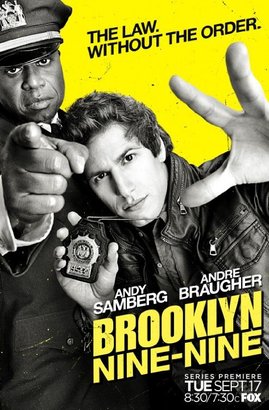
Brooklyn Nine-Nine was broadcast on E4 in January this year after first appearing in the U.S. earlier in 2013. It features Andy Samberg of The Lonely Island and Saturday Night Live, as well as many writers and producers from Saturday Night Live, including Michael Schür, who some of you will know as Mose from The Office (U.S.) – and Daryl also makes a brief appearance.
The tone of Brooklyn Nine-Nine is very similar to that of The Office. It features heavy uses of sarcasm and emotionally uptight characters to produce the vast majority of its comedic moments. A Captain that no one can read, and Rosa, who cannot help but be mean and horrible in every word she utters, are very similar to Angela in The Office. Detectives Scully and Hitchcock provide the strangeness for main characters Jake and Amy to belittle with sarcasm, whilst having their own will they won’t scenario, that once again reeks of Jim and Pam from The Office – but this has become a staple of any American sitcom.
However, Brooklyn Nine-Nine develops its own tonal niche by mixing this cynicism and sarcasm with the silliness and wackiness of Scrubs, particularly the nature of Jake and his inability to grow up as well the show’s heavy use of flashbacks, and cutaways.
For me this is an excellent first series of a show packed with enough talent and potential to stretch on for many series and make a claim as on the great modern American sitcoms. If you like The Office, Scrubs or Parks and Recreation this is well worth a watch when season two comes to E4 early next year.
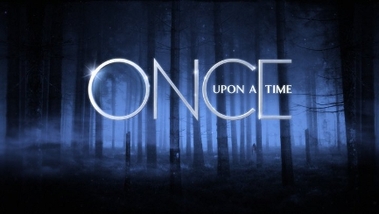
If put in competition with the surrounding TV series up for review in this article I fear ONCE would not rank all too highly. But that said, Season Four has so far brought us a lot to talk about with laughter, shocks and multiple ‘I see what you did there’s. And for me that was all down to the Frozen storyline and a huge character progression.
Love it or hate it ONCE reimagines the tales we know and love with gusto, and this time with a flurry of ice and snow. Two snow queens were on the prowl, dressed in easily identifyable dresses made from ice magic, some more revealing than others… but we also got the lovable Anna and Kristoff in real life form, Disney humour and more. And despite the intricate twists and turns to the tale, Hans still ended the story arc with a black eye. No number of trips to the Ice Queen Parlour will ever sort him out.
It is a wonderful message for the start of the new year that there is good in all of us and the biggest positive for ONCE was its development into the theme of redemption for villains (excluding you Hans, sorry not sorry). Regina, a.k.a. the Evil Queen, has developed so much as a character since her selfish beginnings she is almost unrecognisable. A team player, a valued member of the Storybrooke community and one half of Henry’s pair of mothers (long story) she has reached the point where she deserves her happy ending, backed by viewers and ONCE fans the world over. Going forward let us hope this is recognised and she finds her happy ending, particularly alongside the introduction of an abundance of Disney villains arriving in March 2015.
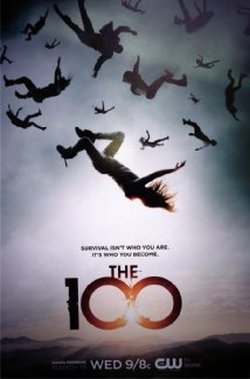
2014 brought the first series of The 100 and the first half of the second series. It is rather difficult to come up with a concept for a TV show that is ‘original’ or hasn’t been overused. There have been some great post-apocalyptic TV shows in the past and present, The Walking Dead, Under the Dome, and Battlestar Galactica to name a few. However, The 100 it carves its own way. It is currently the only notable post-apocalyptic show that focuses on the state of the earth after a nuclear apocalypse. It keeps you gripped from the word go.
The show centres around Clarke Griffin, a girl sent to prison as an accessory to her father’s crimes aboard the Ark (the space station the remaining humans call home.) She, and 99 other underage criminals, are sent to Earth to test the environment since the Ark is critically failing. The show follows the 100, their attempts to explore Earth, see if it is survivable; inevitably have to protect themselves from its mysteries.
Eliza Taylor does a great job portraying Clarke. She is authoritative, intelligent, brave and everyone’s best hope. She shifts through emotions extremely easily; Taylor does a very good job in showing this. Bob Morley, however, is in a different league. His character, Bellamy Blake, stows away on board the ship that takes the 100 to earth, just to protect his sister. He begins as an extremely hard and tough character and immediately takes charge. However, as the show goes on, we see his softer side, the side of him that doesn’t lead with fists and guns, but with intellect.
Every main character has their own back story and personality. The settings in the show are beautiful, the plots never stop impressing and ultimately, it has become one of, if not THE best post-apocalyptic shows of all time.
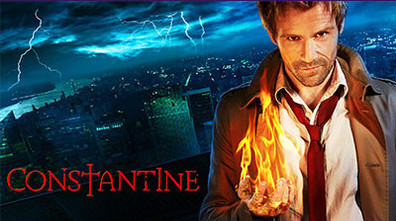
As of writing, Constantine is only halfway through its first (and quite possibly only) series.
Adapted from the Hellblazer comics, Constantine is based around the titular John Constantine, as he battles against the Rising Darkness. It also contains no links whatsoever to the Keanu Reeves movie of the same name, which is always a plus.
The series has grown from a shaky pilot episode to a true screen companion to the comic from whence it sprang, combining the creepy atmosphere and tense action with the sarcastic humour of Constantine himself. Unfortunately this hasn’t been shared with the viewing figures, as they remain fairly low and the series runs the risk of being cancelled after the end of the first season, though announcements that the show will be aired at an earlier time may help boost the numbers and give it the second chance that it rightly deserves.
Of course, as with any adaptation, some aspects of the character get left by the wayside, either because of time constraints or for reasons beyond our ken. The parts removed from Constantine’s character seem to take up more of the latter than the former. First of all, Constantine’s chain smoking has been neutered to the point of only ever seeing him place a cigarette in his mouth and light it or put it out, half smoked, due to laws preventing the depiction of smoking. Secondly, Constantine’s bisexuality, whilst merely touched upon in the books, has been removed in its entirety. This is possibly the more jarring omission of the two, as there are precious few bisexual characters in TV, and Constantine is shown on NBC, a channel which features everyone’s favourite cannibal, Hannibal.
Despite the negatives, the show is a tour de force with the acting. Matt Ryan plays the laconic Liverpudlian perfectly, with the right amount of snark and condescension towards his teammates. The supernatural buddy-cop relationship between him and Chas (played by Charles Halford) is wonderful with plenty of back-and-forth insults to keep the humour going.
Constantine is great fun to watch, and really manages to pick its feet up from episode four, which is a direct adaptation of the first Hellblazer storyline. Its state of renewal may still be up in the air, but this is definitely a show that is worth a second series.
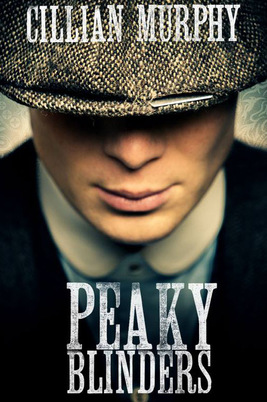
Peaky Blinders season two may not have been as great as the first season, but it was still one of the best shows on British TV this year. The Shelby family continued their gangland expansion in 1920s Britain, moving out from Birmingham and down to London. But obviously not everything went the way the Brummie gangsters wanted it to. It’s difficult to think of another series that’s quite so beautifully shot, with the CGI recreating the cities looking great and never out of place. And while some people complain about the modern music, Nick Cave and the Bad Seeds fits the swagger of the characters. But the best bit of Peaky Blinders is the acting. Cillian Murphy, as protagonist Tommy Shelby, might have taken a back role, but he was as great as ever. Sam Neill seemed to have taken dialect lessons, his Ulster accent barely slipping as Major Campbell’s quest for revenge twisted him. But two of the best cast members were Tom Hardy and Noah Taylor as London gang leaders Alfie Solomons and Darby Sabini. Hamming it up every moment they were on screen, it looked like they were having the time of their lives, and thus made their scenes a joy to watch.
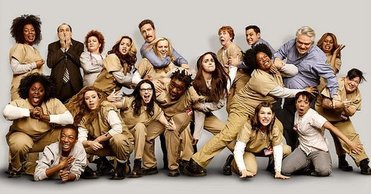
“Every sentence is a story” is probably the best way to sum up the glorious Netflix original series that many people binge watched repeatedly this year. After all, it is one of the few television shows that actually cares more about creating depth for the characters within different situations rather than allow the situations to take control. The enriching stories in Litchfield Prison, where our supposed main protagonist Piper is dealing with her incarceration and cursing Alex sudden but inevitable betrayal is what develops Orange Is The New Black into a stunning series. Whilst the in-fighting, tension and gang warfare took precedence this year, we all fell in love with Poussey and her fight against Vee’s tirade and rise within the prison. While that was the main highlight of the show, we also got to empathise with Gloria, laugh with Red and her genius one-liners and see Sister Ingalls take protesting to the extreme. But against this, we were entertained by the Prison employees such as Caputo and Fig as they grappled with their own tales and issues.
It’s funny, it’s witty and it’s well-written – portraying women of every background exactly how they should be; as humans despite the crimes. In fact, it’s not even despite the crimes. Everyone here is grappling with their stories and the crimes are just a product of being a messy human being forced into desperation. You care for each person here as episode by episode we fall in love with someone new.
Except Vee.
Yeah. Fuck Vee.
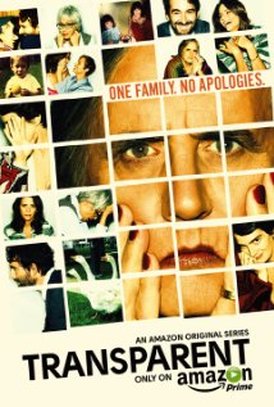
Transparent is complex, touching, and painfully intimate. Humans are weak, selfish, fallible, but also capable of deep abiding love and compassion, and the full spectrum of human emotion appears here. Maura’s transition and the messy, selfish, dysfunctional lives of her family makes this a deeply personal story, full of heartbreak and loss, but unexpected kindnesses and a permanent strand of tender hopefulness buoy what could otherwise have been a dark, sad tale of loneliness and prejudice. Transparent is fearless as it explores gender identity, sexuality, prejudice, and family life. Few shows have ever handled similar topics with such care, and the result is a deeply moving exploration of who we are and the roles we blindly play.
It is significant that Transparent shows that the problems Maura’s children face are not a result of her coming out, but are a product of their adult choices. Maura is not the problem: they are. As her children navigate the waters of their own identity crises, Maura is stepping out the other side, ready to explore and embrace who she is. Ultimately, her children could learn a lot from Maura if they were self-aware enough to realise they should be paying attention.
The show’s overwhelmingly positive reception is both a reflection of the sophisticated, moving story and the audience’s ready acceptance of a show that explores what have long been considered taboo topics. Gender identity is not black and white, and Transparent dares to give us a more layered, nuanced exploration of gender. The characters are not always likeable, but they are honest and flawed and human. Transparent is a show that was desperately needed and has already paved the way for similar content. Hopefully Maura’s story will continue to go from strength to strength next season.
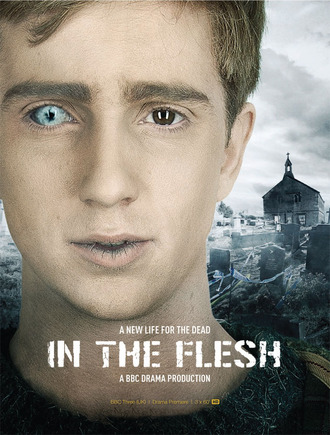
The amount of issues packed into series two of In the Flesh is staggering. Segregation, mental illness, sexuality, religious fundamentalism, minority fetishisation, all these and more are explored in depth in just six hours. And yet, In the Flesh doesn’t feel like an “issue” show. That is because writer/creator Dominic Mitchell is a master at utilising the zombie metaphor to a number of different effects. Still following PDS sufferer Kieren Walker (Luke Newberry) and the small, intolerant town of Roarton in Lancashire, series two is both a rollercoaster ride in terms of storyline, and an introspective look at difference and humanity.
New faces are added to the cast, most notably Emmett Scanlan as Simon Monroe, a loyal disciple of the Undead Prophet and member of the Undead Liberation Army, and Wunmi Mosaku as Maxine Martin, the local MP and member of a far-right, anti-zombie party. The beauty of this series is you can draw so many parallels between the paranormal fiction and reality. Victus’ political presence is echoed in the rise of UKIP; the fundamentalist beliefs of the Undead Liberation Army recall extreme religious groups in our own society. It is a world where any difference is wrong, but there is difference everywhere. The relationship between Amy and Philip (one a PDS sufferer, the other human) is seen as an abomination in the way that some still view interracial marriage to be. And while there is no conflict in Kieren and Simon’s relationship in terms of them both being men, Simon is still forced to choose between love and religion. And finally, there’s Jem Walker (Harriet Cains), where the show tackles a harrowing and honest PTSD storyline following her experiences in the Human Volunteer Force. Yes, In the Flesh is a zombie show on the surface, but the reason it is so great is that, whatever experience you’ve had in your life, you will find something to connect with.
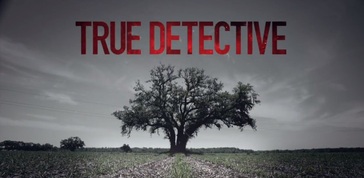
HBO has got to be the most reliable TV station in the world at the moment; everything they make is a masterpiece. The station spawned programs like The Sopranos and The Wire, two shows that are considered to be the best of all time. Not to mention quality programming like Boardwalk Empire, Entourage, Game of Thrones etc. they never seem to misstep, and their new drama True Detective was no exception. The series followed detectives Martin Hart (Woody Harrelson) and Rust Cohle (Matthew McConaughey) as they recall the events of a 17 year hunt for a serial killer in Louisiana and how their lives became entangled. True Detective was haunting; it was dark and gritty and extremely unnerving, but it made for excellent viewing. You found yourself constantly on the edge of your seat, just dying to find out how it all ends. Rust Cohle is perhaps one of the best written characters in HBO history, and McConaughey gives a phenomenal performance. Unfortunately, we won’t see these two likeable leads again as True Detective is an anthology series, with a new plot and cast confirmed for Season Two, but we can revel in the brilliance that is one of the best seasons of TV of all time, and certainly the best of 2014.
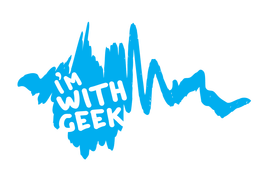
Those are our favourites of 2014.
What were yours?
Let us know in the comments!

 RSS Feed
RSS Feed
